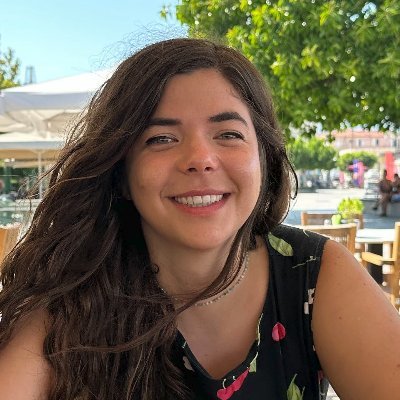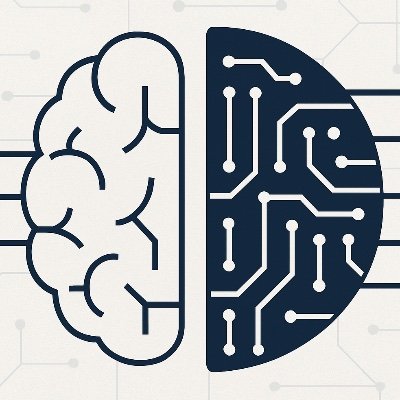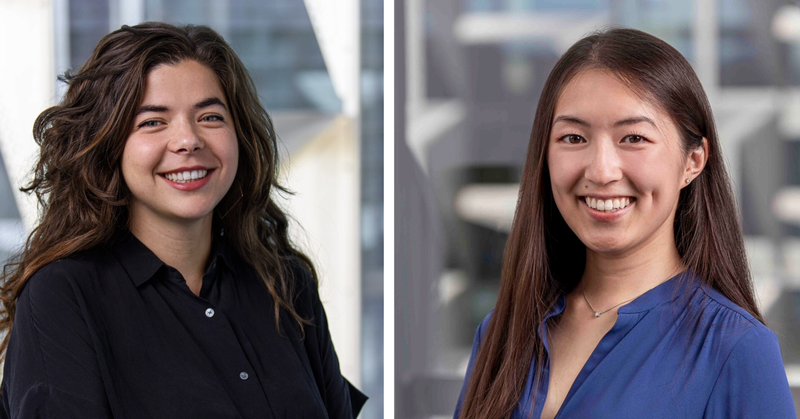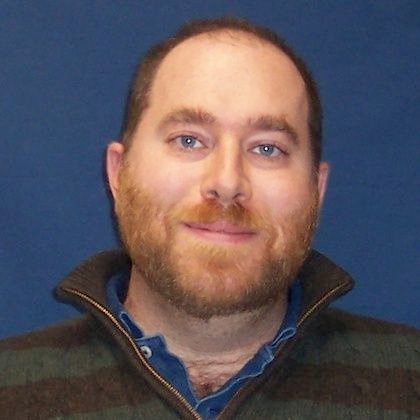
Jacob Prince
@_jacobprince_
Followers
453
Following
2K
Media
17
Statuses
188
4th-year PhD candidate studying neuroAI @ Harvard with @talia_konkle and @grez72. Vision, DNNs, fMRI, behavior. Previously @TarrLab, CMU. Avid musician 🎹
Cambridge, MA
Joined May 2019
Excited to share our new work: “A contrastive coding account of category selectivity in the ventral visual stream”, with @talia_konkle and @grez72. https://t.co/LOYLkNtWqH 🧵 1/n…
biorxiv.org
Modular and distributed theories of category selectivity along the ventral visual stream have long existed in tension. Here, we present a reconciling framework, based on a series of analyses relating...
2
34
112
Synthesizing these observations, we propose a refined view, motivated by Gärdenfors' theory and attention geometry. Activations = multiple convex hulls simultaneously: a rabbit among animals, brown among colors, fluffy among textures. The Minkowski Representation Hypothesis.
1
2
21
🕳️🐇Into the Rabbit Hull – Part II Continuing our interpretation of DINOv2, the second part of our study concerns the geometry of concepts and the synthesis of our findings toward a new representational phenomenology: the Minkowski Representation Hypothesis
5
68
381
I shared an office with Thomas for a year and saw it with my own eyes: truly never have I seen so much work and original thought go into one interpretability paper
🕳️🐇Into the Rabbit Hull – Part I (Part II tomorrow) An interpretability deep dive into DINOv2, one of vision’s most important foundation models. And today is Part I, buckle up, we're exploring some of its most charming features.
1
15
170
🕳️🐇Into the Rabbit Hull – Part I (Part II tomorrow) An interpretability deep dive into DINOv2, one of vision’s most important foundation models. And today is Part I, buckle up, we're exploring some of its most charming features.
10
120
642
Why are some words and sentences easier to remember than others? Two of our papers covered by @MIT News today: we found that unambiguous words with few or no synonyms ("Pineapple") and sentences with distinctive meanings (“Every cloud has a blue lining”) are most memorable!
Words and sentences that are highly dissimilar from anything we’ve seen before are more likely to be remembered accurately, according to research from @ev_fedorenko @GretaTuckute @bj_mdn @thomashikaru @LanguageMIT. https://t.co/8KyOqv9LEA
@mitbrainandcog @ScienceMIT
1
5
30
🧠 New preprint: Why do deep neural networks predict brain responses so well? We find a striking dissociation: it’s not shared object recognition. Alignment is driven by sensitivity to texture-like local statistics. 📊 Study: n=57, 624k trials, 5 models https://t.co/GSowf8JYUA
3
19
47
Check out @fenildoshi009's work! Love the 20° tuning finding: models finetuned at this curvature generalize to unseen curvatures, rediscovering the old Geisler results from visual neuroscience! 👀
🧵 Can a purely feedforward network — with no recurrence or lateral connections — capture human-like perceptual organization? 🤯 Yes! Especially for contour integration, and we pinpoint the key inductive biases. New paper in @PLOSCompBiol with @talia_konkle & @grez72! 1/24
0
4
20
🧵 Can a purely feedforward network — with no recurrence or lateral connections — capture human-like perceptual organization? 🤯 Yes! Especially for contour integration, and we pinpoint the key inductive biases. New paper in @PLOSCompBiol with @talia_konkle & @grez72! 1/24
2
20
117
Humans largely learn language through speech. In contrast, most LLMs learn from pre-tokenized text. In our #Interspeech2025 paper, we introduce AuriStream: a simple, causal model that learns phoneme, word & semantic information from speech. Poster P6, Aug 19 at 13:30, Foyer 2.2!
8
32
193
Can't wait for #CCN2025! Drop by to say hi to me / collaborators! @bkhmsi @yingtian80536 @NeuroTaha @ABosselut @martin_schrimpf @devarda_a @saima_mm @ev_fedorenko @elizj_lee @cvnlab
0
14
78
Chatted with Le Monde about interpretability and sparse autoencoders. (Yes, SAE made it into mainstream news 😅) https://t.co/ondoORjzlW Merci à Nicolas Six pour l’échange !
lemonde.fr
Les rouages des robots conversationnels demeurent très opaques, mais des chercheurs commencent à localiser les « neurones » qui stockent les informations et prennent des décisions-clés.
4
9
57
Why do video models handle motion so poorly? It might be lack of motion equivariance. Very excited to introduce: Flow Equivariant RNNs (FERNNs), the first sequence models to respect symmetries over time. Paper: https://t.co/dkk43PyQe3 Blog: https://t.co/I1gpam1OL8 1/🧵
8
72
396
Very excited to be joining the Kempner Institute this fall—and to be part of this amazing cohort and the broader Kempner/Harvard community! Please don’t hesitate to get in touch!
Thrilled to announce the 2025 recipients of #KempnerInstitute Research Fellowships: Elom Amemastro, Ruojin Cai, David Clark, Alexandru Damian, William Dorrell, Mark Goldstein, Richard Hakim, Hadas Orgad, Gizem Ozdil, Gabriel Poesia, & Greta Tuckute! https://t.co/mbFOsLFdNw
7
5
100
🧠 Submit to CogInterp @ NeurIPS 2025! Bridging AI & cognitive science to understand how models think, reason & represent. CFP + details 👉
We’re excited to announce the first workshop on CogInterp: Interpreting Cognition in Deep Learning Models @ NeurIPS 2025! 📣 How can we interpret the algorithms and representations underlying complex behavior in deep learning models? 🌐 https://t.co/sKn7LYWtR7 1/
0
8
32
📢 We're thrilled to announce that the UniReps workshop will return to @NeurIPSConf 25 for its 3rd edition! 🔵Check our new Call for Papers at: https://t.co/i0lGs0DQXm 🔴Submit your work (Proceedings or Extended Abstracts) at: https://t.co/9fZzZvgi9M See you in San Diego!🌴🇺🇸
1
14
42
Check out this amazing work by @fenildoshi009 on shape holistic processing in vision models! 🍀
🧵 What if two images have the same local parts but represent different global shapes purely through part arrangement? Humans can spot the difference instantly! The question is can vision models do the same? 1/15
1
6
36
🧵 What if two images have the same local parts but represent different global shapes purely through part arrangement? Humans can spot the difference instantly! The question is can vision models do the same? 1/15
5
123
606
The Kempner Institute congratulates its research fellows Isabel Papadimitriou (@isabelpapad) and Jenn Hu (@_jennhu) for their faculty appointments (@UBCLinguistics & @JHUCogSci) and celebrates their innovative research. Read more here: https://t.co/Uw0mU42ZUS
#AI #LLMs
kempnerinstitute.harvard.edu
As members of the first two cohorts of research fellows at the Kempner Institute, Jennifer Hu and Isabel Papadimitriou both arrived at Harvard to pursue research that advances the field […]
0
6
28
What shapes the topography of high-level visual cortex? Excited to share a new pre-print addressing this question with connectivity-constrained interactive topographic networks, titled "Retinotopic scaffolding of high-level vision", w/ Marlene Behrmann & David Plaut. 🧵 ↓ 1/n
4
30
87
This workshop is going to be properly epic...very honored to be included among the speakers
Come to our CCN workshop! Blending iophysical constraints and neural networks. Topographical ANNs + and much more. @meenakshik93 @talia_konkle @PouyaBashivan @nmblauch @TimKietzmann @GwilliamsL @apurvaratan @jakhmack @Pieters_Tweet @martin_schrimpf Andrew Miri Nabil Imam
0
4
14















